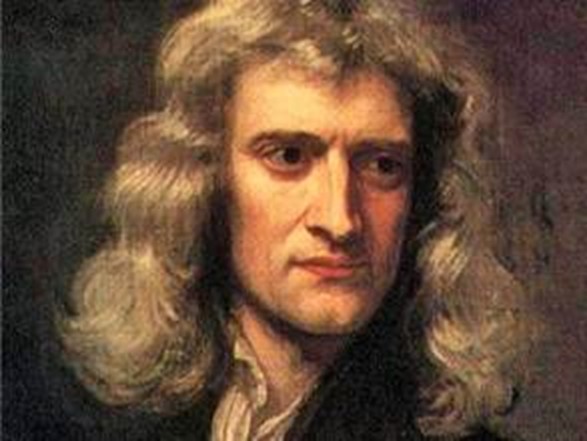

In Western society, there is a common narrative around the history of science and religion. It argues that we were on the right track of rationality and science with the classical Greeks like Plato and Socrates. Then we had a long dark age where superstition and religion dominated. But from around the 1500s we got back on track with the Renaissance with figures like Da Vinci, Galileo and Isaac Newton.
The narrative puts science and religion in opposition – almost like by becoming less religious, society become more rational and scientific. Of course, it’s not true, especially when it comes to Sir Isaac Newton.
Newton was a key player because his ‘Philosophiæ Naturalis Principia Mathematica’ published in 1687 revolutionised science. He introduced his 3 laws of motion (remember …every action has an equal and opposite reaction etc) which established modern physics. It is perhaps the most important book in the history of science. But even within that text, we can see Newton’s deep belief in God:
‘This Being governs all things, not as the soul of the world, but as Lord over all…The Supreme God is a Being eternal, infinite, absolutely perfect…As a blind male has no idea of colours, so we have no idea of the manner by which the all-wise God perceives and understands all things. He is utterly void of all body and bodily figure, and can therefore neither be seen, nor heard, nor touched, nor ought he to be worshipped under the representation of any corporeal thing.’
This very absolutist view of God led him to try to discover the universal laws of science. As it happens it also led him to deviate from Christian dogma, he didn’t believe in the Trinity for example (ironically he taught at Trinity College, Cambridge). But what is sweeter is his sincerity to not sin in his youth. In his diary of 1622, when he was 20 years old, he listed all the sins he had recently committed – 57 in all. Here is a selection:
‘2. Eating an apple at Thy house
8. Making pies on Sunday night
12. Refusing to go to the close at my mother’s command
14. Wishing death and hoping it to some
17. Stealing cherry cobs from Eduard Storer…
18. ….Denying that I did so
20. Setting my heart on money learning pleasure more than Thee
24. Punching my sister
26. Calling Dorothy Rose a jade
35. Not loving Thee for Thy self.
45. Beating Arthur Storer
50. Glutony’
I wonder what issue Newton had with the Storer brothers! In any case, this reveals a deeply religious, but questioning mind. Perhaps it was the fusion of his religious and scientific thinking that resulted in his genius.
Bilal
